|
The loss of a beloved pet can be the deepest heartbreak of our lives. With each article, we will address and answer a key topic with Certified Pet Grief Counselor, Pina De Rosa (APLB / AAVSB). If you wish to send in questions for Pina, please submit them to Pina De Rosa through www.PetBereavementCounseling.com In our last topic on Pet Grief Counseling, we looked at “My pet died, what do I do?” With this topic, we get to look at how to “welcome the ashes” home. The return of the ashes home is something that does not need to be rushed. As Scott Summerville (the wonderfully kind mortician who handled the after care for my dogs) best put it: “During your pets final days, just dedicate your time and energy to giving your beautiful dog all the love you can. After your pet passes, celebrate their life. Light some candles and incense...play spiritual music...invite loved ones over (and have them bring your favorite pizza and some ice cream) to say their “goodbyes” and grieve with you. There is no reason to rush through this deeply emotional process. If your dog passes away at home, don’t worry...Nothing is going to happen to your pet overnight. Just wrap them in an old sheet and get some rest. Call or text me in the morning. Keep peace and love in your heart.” All this is until the moment your pet takes his/her last breath. In last month’s column, we addressed more of what are the next steps, what to expect, as well as options such as the goodbye letter. If you choose to have your pet cremated, “welcoming the ashes” home may sound a bit “California woo-woo” but what I am about to share was actually taught to me by an elder, a dear friend from another culture. The ashes being returned home is likely to be quite a surreal experience, so please be sure to not be alone when that deeply emotional moment happens. When you hold the urn for the first time, and even for a few weeks after, you will likely vacillate between the feeling this is my pet..this is not my pet..yes this is my pet (those are his/her earthly remains), no this is not my pet (he/she is not physically there)… As this back-and-forth will feel like a most surreal experience, I definitely recommend you be home with one close friend for the moment that the ashes are returned to you. It would be best to arrange the ashes be returned personally by someone from the mortuary (vs. being returned to you by mail, as certain businesses provide, or even vs. going alone to pick them up at the vet’s as the drive home could be most distressing, especially if you are driving). When you are home with your close friend (who arrived at least an hour before the ashes are delivered), hold the urn with both your hands when you receive the ashes – perhaps even hold the urn close to your chest. Fill yourself with love. Imagine connecting your heart with your pet’s heart as a way to give and receive love from both hearts. Stay in love, not fear as you get to celebrate the undying love in welcoming them home. Slowly, and together with your friend, walk through every room of the house, the garden, every place the pet visited at home. It may seem strange to read this, but it will feel very profound to actually go through the experience of welcoming your pet back home this way. If you have a garden, do the same by walking for a few minutes holding your pet’s ashes along his/her favorite path in the garden. And then ultimately gently lay the urn to rest in your pet’s favorite spot in the house, or even in your pet’s favorite bed. At least for now, it can be a temporary resting spot for the ashes, then later on you can decide if you want to move them to a different spot. The ashes can find a final resting place in the house later on; that does not need to happen on the first day. It’ll feel extremely surreal for you because those earthly remains are your beloved pet, but at the same time it will feel like your companion is not there as they are physically absent. Your friend’s presence is very important as it will help ground you in this most surreal experience. Preparing for this moment, and welcoming the ashes home with such a grounding and respectful ritual helps deepen the reverence even more. In doing so your heart can begin its healing journey.
1 Comment
The loss of a beloved pet can be the deepest heartbreak of our lives. With each article, we will address and answer a key topic with Certified Pet Grief Counselor, Pina De Rosa (APLB / AAVSB). If you wish to send in questions for Pina, please submit them to Pina De Rosa through www.PetBereavementCounseling.com In our last topic we looked at the impact of hearing “it was just a pet” and dealing with disenfranchised grief within the stages of grief. With this topic, we get to look at “My pet died, what do I do?” Often times people tell me that right after their pet died they had no idea what to do next. And friends of bereft pet parents wish they knew what to suggest, what to say, how to help? When the human-pet bond physically breaks, the intensity of the pain can feel unbearable. We enter a state of shock and often times, we do not know what to do next. The fact is that the intensity that can characterize the human-pet bond can be one of the hardest thing to put in to words. Words are actually limiting to the experience as we entrust them with the deepest side of us. Those of us who experience it for the first time did not know that it could be so deep, soul-filling and even overwhelming. The human-pet bond can feel like the purest form of unconditional love, and one of the most spiritual love experiences of our lives. We feel a sense of loving safety, connection and intimacy with our animal that is like no other bond. They become our soul mates, so much so that we can become emotionally dependent on them. The depth of the soul connection we feel is matched by the intensity of the emotional distress we experience when our pet dies. When that happens, it feels like our heart constricts in our chest, and it physically hurts to breathe. That is how emotionally intense, complex and personal the human-pet bond can be. When that bond physically breaks, the intensity of the pain feels insurmountable. In time we realize that spiritual connection is an unbreakable bond that will continue to enrich us for the rest of our lives. As that bond lives in us, and as their spirit lives through us, we get to discover even more about love. That is yet another wonderful gift we receive, even well after they are gone. And, supporting us in learning to handle change is one of the many gifts that characterize the intense human-pet bond. Aside from all the emotional layers that we have covered at length in prior articles as well, here is some input -and logistics- that I wish I would have known about well before my first pet died. Depending on your religious or spiritual inclination, you may decide to either bury or cremate the body of your beloved animal companion. Deciding which pet mortician, or pet cemetery to pick, and having to make that choice right after your pet dies, at the time of such intense deep pain, is probably the least favorable time to make this final decision. After my first dog passed away, and how emotionally excruciating it was to deal with the grief itself, as well as the logistics, I realized that the best course of action for the future would be to have all the arrangements pre-made while the pet is alive and well (not unlike for humans). That way, when the day comes, the focus can be on being fully present with the beloved animal companion vs. being bogged down with logistics and details of painful, last decisions. The fact is -as morbid as it may sound- that is ideal if the cremation or burial details are already in place while the pet is alive and well. It’s the same for people. Plan ahead. When it happens, it’s not the time to start making plans – I remember I was so distraught when that happened the first time, especially as it was a sudden and traumatic experience without a peaceful goodbye, that it was the last thing I wanted to do. I was already in a deep state of shock. Plus I was reading all these bad Yelp reviews and nightmare stories of a cat’s ashes being returned in a coffee tin, or warnings to not enter the side door of a mortician’s place of business or you’d accidentally see dead pets wrapped in cellophane, stacked high with limbs protruding! I got even more distraught – what if I made the wrong final decision? That is why, with every beloved pet I adopted after my first dog passed, I set up all the aftercare arrangements the same week they were adopted. When my second dog passed away, the only relief was that all the logistical details of his cremation had already been pre-arranged. All I had to do was send a text to Scott Summerville founder of www.AtGardensEdge.com I could not recommend Scott more highly, and I strongly recommend that you Yelp a pet mortician in your area whom you feel confident will give your beloved furry companion the dignified last rites and respect they deserve. When I lost my first beloved dog it was sudden, unexpected, and there was no goodbye. I was not prepared/able to make any decision in the state of deep shock I was in. A friend offered to help call a few cemeteries and cremation places and to send me a summary of costs / times / details of her top suggestions. A few days later another friend helped me make calls to the top 3 choices I had selected based on my friend’s suggestions, as well as Yelp reviews. That is how I selected Scott Summerville and he was, truly, a God-sent. As you get through the decision of who will handle your pet’s aftercare, other next steps are what to do with their belongings. Then, writing a letter. Friends want to help, but often times they do not know how. Ask a friend to help you with your pet’s belongings: specifically to help you by making returns, food & vitamins returns, any Amazon returns. As well as donating any left-over medication to your own vet who can then prescribe/donate it to families who would not be able to afford the cost of prescriptions. Ask a friend or two to come over and clean out the kitchen/house of all your pet bowls and personal items. It’s helpful if they clean what is washable and put everything away in a box so you would not have to look at it when you are home (especially if you live alone). At a later time, when you can bear it, you will be able able to look through it and decide accordingly. In time, some of my dog’s personal items, as well as personal items that used to belong to the pets of all my grief counseling are chosen / donated to homeless pets living out in the streets as part of #MissionWellington and his www.TreatsForPups.com - There are other philanthropic organizations in your areas in need of donations of gently used items. I invite you to let another pet benefit from the special things your furry companion loved. Here is a photo of a homeless pet and his owner who inherited one of Wellington’s beds after his passing. Before your pet is cremated or buried, a good next step is to write a letter. A letter to your pet that you will seal and give to the pet mortician so your pet can be either buried or cremated with it. This letter can be a testament of so much that you love about your pet; it can include what you are thankful for and what you miss about them…. In that letter/envelope, you can include a small little something that belongs to you so that it will go “with” your pet… I recommend staying away from any plastic or metal objects as they’d likely compromise the ashes in the cremation process, but a section of a special blanket, a lock of your hair, a photo would surely work. Tell the mortician to please include that envelope with your dearly beloved. Let them know there is nothing plastic or metal in it. They will say yes. Also, in case of cremation, ask them if they will do something called a 90/10 (or 80/20)? That ensures the ashes being returned to you in 2 separate pouches, one large ouch of ashes and one smaller pouch in case you decide to spread the ashes at a later point. The reason behind the 2 separate pouches is so that you will not have to handle or disturb the ashes should you wish to have only a portion spread, while keeping another potion safely at home with you. Next, ensure you have the following 3 things: a framed photo of your pet, your pet’s collar (or favorite toy), and a new journal. The framed photo is so you can hold the frame, kiss it, and even use it as a “portal” to talk to you pet if you’d like to connect with him/her that way. The collar (or favorite toy) is so you can squeeze it when you need to hold something that your furry companion loved. And a new journal is so you can explore and express your thoughts and feelings, whether you are receiving pet bereavement counseling support, simply talking with friends, or going through your internal solo healing journey. There are several options for pet grief counseling that I recommend you Yelp (in person, on the phone, via FaceTime / Skype). www.PetBereavementCounseling.com offers an initial complimentary session, as well as sliding scale. If you are not open to the personal support of pet grief counseling, I definitely recommend the following 2 books as it will help you to read them early on, and especially during the phase of grief that may push you towards isolation: both books will help immensely. “The loss of a pet – a guide to coping with the grieving process when a pet dies” by Dr. Wallace Sife “Until we meet again: From grief to hope after losing a pet.” by Melissa Lyons I am not suggesting either book, I am suggesting both as they will help you navigate this harrowing heartbreak.
The loss of a beloved pet can be the deepest heartbreak of our lives. With each article, we will address and answer a key topic with Certified Pet Grief Counselor, Pina De Rosa (APLB / AAVSB). If you wish to send in questions for Pina, please submit them to Pina De Rosa through www.PetBereavementCounseling.com In our last topic we looked at what are some of the factors that should be considered after a beloved pet dies, before getting another one? When it would be right or wrong to do adopt, again? How should a bereaver respond to the advice of others, regarding this? With this topic we get to look at the impact of hearing (or saying) “it was just a pet” and dealing with disenfranchised grief within the stages of grief. Disenfranchised grief is the type of grief that is not appropriately recognized, either by the bereaver’s friends, family, colleagues, society in general or anyone else around them. Disenfranchised grief can further aggravate the pain of the bereft pet owner’s who is already heartbroken. When their hear phrases like “it is/was just a pet”, it makes them feel like their pain is not validated and it makes it even harder to cope with the anguish they feel. When that unique human-pet bond is not understood, when that special devotion is not recognized by those in the life of the bereaved, it turns an already heart wrenching event into an even worse experience to endure. The bereaver ends up feeling self-conscious about their special soul-mate relationship with their beloved pet and may even become defensive. As a result, when their grief is not validated or recognized, they suffer even more because they end up spending part of their emotional energy being defensive instead of focusing on the loving memory of the deceased pet. At the very beginning of the first session, the counselor can help the heartbroken pet parent by validating their grief. By offering compassion and warm-hearted assistance, the counselor can help them cope with the anguish. By helping the bereaver understand that whey they are feeling is completely normal, that they are not going crazy, and that what they feel is to be expected, the counselor can gently help them start the healing process. It is important for the newly bereft pet owner to be made aware of and understand the stages of bereavement as it can support them in understanding that such overwhelmingly sorrowful emotions are to be expected. When a huge stable part of their daily life is abruptly ripped out, they are in a deep emotional state of shock. Often times the pet parent is not equipped to cope with their pet’s death. Even if they prepare themselves, they are rarely ready. It is helpful for them to understand that such overwhelming experience with grief and loss is something that most people experience when coping with a deep heart-wrenching loss. The length of grief is unpredictable, from a few days to a few weeks, or even longer. Understanding this, and the phases of mourning, can lessen any fear they may feel from such emotional trauma. The heartbreak they feel is so tragic, they may feel they need to endure it to no end. Understanding that the overpowering emotions they are feeling are normal can serve as a road map of the path ahead. People are often afraid of death, which can cause them to be afraid of feeling such unbearable new emotions. If they do not allow themselves to feel their true feelings, they end up causing even more psychological harm to themselves. It is beneficial to their healing process to know that the initial shock, denial and disbelief they feel are absolutely normal. And that letting out their tears is not a weakness, but a necessary part of healing. It is important to reassure them that vacillating between anger, alienation and distancing is a normal temporary response to the suffering they feel. It is often too hard for the bereft pet-owner to comprehend such loss. Letting them know that these stages are all normal during mourning, and that they are non-sequential, will help them cope with the vast scope of emotions. They may feel they are losing it, they are likely to feel guilt, and even experience some degrees of depression before they the get to a place of spiritual and emotional healing. Addressing them with understanding and compassion will help the bereaver make the journey towards that healing and resolution. What is “resolution” all about, and why do we now use this term, instead of “closure”? How can we help the grief-stricken pet parent to work toward this stage? Resolution is the final stage of bereavement. It is the time when the pet parent gets to keep the memory of their beloved companion, while being able to let go of the sharp pain and anguish they have been experiencing until now. It is when they learn to live with the pain of the loss. Resolution is the time when the pet parent is able to shift from feeling like a victim to honoring their pet’s precious brief life. Those heartwarming memories allow the bereaver to experience a new depth of love for their special companion. We now use this term instead of “closure” because, in psychology, “closure” is usually related to finding a solution to a problem. That is not a good choice when applied in reference to the loss of a dear one. The concept of “closing” is utterly intolerable to an anguished pet-owner who has just lost their special companion. When the bereft pet parent feels threatened by anything that might invalidate what they are going through, they are likely to close off and even walk away. Those are reasons why we use the term “resolution” instead of “closure”. We help them to work toward this last stage by supporting them in realizing that they can be celebrants of their special companions’ lives. We help them also by reassuring them that it is normal that they will feel some of that pain in the future - even at seemlingly random times. It is expected to tear up again even as they heal and go on with their lives. As a final note, it is also very helpful for the bereaver (and the people around them) to understand the different types of guilt they are likely to experience on their path towards resolution. Merited guilt is an emotion the pet parent will likely experience if their pet died as a result of their oversight, and carelessness - an accidental death that was not vicious in intent. Unmerited guilt is what they will likely experience when their anger is directed inward. With either merited and unmerited guilt, the bereft pet owner’s initial response is similar. They feel they are drowning in relentless self-blame and misery. Both types of guilt are damaging to the human mind and heart. Merited guilt can occur as warranted, while unmerited guilt is quite often undeserved. Both types of guilt should be dealt with in a constructive way. Like disenfranchised grief, guilt can affect a bereft pet owner healing process by deepening their sorrow, and damaging them even more. Emotions often overrule logic during the earlier stages of grief. Guilt is a complex emotion that is often invented. While some amount of self-recrimination is normal during mourning, unmerited guilt is often undeserved. What supports the bereft pet owner to shift from such unremitting self-blame during this intensely sensitive time is a supportive counselor who will guide them towards compassion and self-forgiveness coming from within.
The loss of a beloved pet can be the deepest heartbreak of our lives. With each article, we will address and answer a key topic with Certified Pet Grief Counselor, Pina De Rosa (APLB / AAVSB). If you wish to send in questions for Pina, please submit them to Pina De Rosa through www.PetBereavementCounseling.com In our last topic we looked at 7 things you want to do/say when your friend’s pet passes. With this topic, we get to look at what are some of the factors that should be considered after a beloved pet dies, before getting another one? When it would be right or wrong to do adopt, again? How should a bereaver respond to the advice of others, regarding this? After a beloved pet dies, some of the factors that should be considered before getting another one are the following. Timing is essential. If the bereft pet owner gets another pet too soon, they and the pet may feel additional pain that is connected to unresolved matters or even potential resentment. Willingness and hesitation should be factored in: the client may be willing, but they may hesitate thinking it could be a betrayal to the deceased pet, and turn into rejection. While mourning is a very unique and personal experience to each person, most people will need alone time with their private memories - at least for some time. Only the bereaver can tell when the timing is right, after they have spent enough time healing from the loss of their beloved furry companion. At the right time, a new start can be beneficial. It would be honorable to adopt again after a time of bereavement and depression. It helps save another life, plus a new pet also opens the owner to new encounters and new social experiences. Regular walks with the new pet bring on the added benefit of movement and exercise, which is also helpful in healing the sorrow and solitude. It would be wrong to adopt prematurely, or as a result of other people’s uninformed advice, even when that advice is well-intended. When the pet owner is still resolving their grief, it would be an inappropriate time to bring another pet in their life as the new pet could then become an added problem, upsetting the grieving owner even more. When there is a premature adoption of another pet to (consciously or unconsciously) numb the grief of the loss of the previous pet, what is likely to happen when the new pet passes away, is that the unprocessed grief from the previous loss risks coming out like a double geyser attacking the pet owner in full force, who will now be grieving both pets simultaneously. That can be unbearable. How I would suggest that a bereaver should respond to the advice of others regarding adopting another dog is by sharing with them that “it will be a decision made at the appropriate time, when it feels right”. That time will be after they resolve and work through the bereavement process, so that it does not feel rushed or forceful. While still grieving the loss of our beloved companion, becoming a volunteer for a local animal organization, even just for 1-2 hours/week, would be healthy coping way to ease into opening our hearts to another pet without rushing anything. Many animal rescues need assistance with walking their dogs, cleaning their kennels, taking care of their litter boxes, feeding all their animals. Another great option is becoming a foster parent as a way to be of service to a pet in need. When I was not ready to adopt, but I wanted to be of service, I did all of the above. It was wonderfully rewarding on so many levels. I spent quite some time turning private pain into public service, and I could not recommend it more highly. Often times we hear a bereft pet owner say “I will never have a dog again. I could never ever have another cat / horse / bunny.” Our heartbreak speaks for us, especially when pain is so raw, so unbearable, and so deep. We believe we will never be able to go through such overwhelming grief. Our hearts are shattered with such harrowing pain, we can barely breathe as it is. It physically hurts to breathe and we swear off the idea of ever having a pet again. I had heard other people say it, and I that was definitely my case. I was certain of it. Having said that, while I was in the depths of the overwhelming grief, I realized that I was putting all the focus on me - on my own pain. Initially that is completely understandable. Then as I began shifting the focus towards the love and healing that these beautiful pets selflessly gift us through their entire lives, I also started looking at “How can I be of service to a (new) little soul who needs love?” In other words with that question, I shifted the focus off me and put it on the (potential) new pet instead. When I started focusing on how can I be of service to another soul who needs love, then the idea of going through this unbearable heartbreak again, became not only a reality, but worth it – because it was no longer about me. A friend of mine has been spending his adult life rescuing, fostering, adopting multiple pets simultaneously, hence he has seen many of his pets die over the years. When I asked him how he navigates such depth of pain over and over again, sometimes watching multiple pets die in the same year, he said that he loves giving rescue animals a second chance: “My heart breaks each time, so theirs doesn’t have to. I am happy to be a person that can love so much. The reality of being a pet owner is sadly that their life span is short, but the amount of love my animals receive and the second chances they all get at my house make it worth it. One of my dogs was 8 months old when I got her and she had already been abused and discarded. So having 9 years with her feels like a blessing…for both of us. I bet we both hate the goodbye, but we both also know it’s only for a period of time until I get to see her again.” The deeper the grief, the kinder our hearts become. And if we are open to looking at death as being the ultimate healing, we can allow grief to be the gift it is in our lives. Then we can gently allow our hearts to open to be of service again to another gentle soul who needs love.
|
A blog for conscious pet parents: Archives |

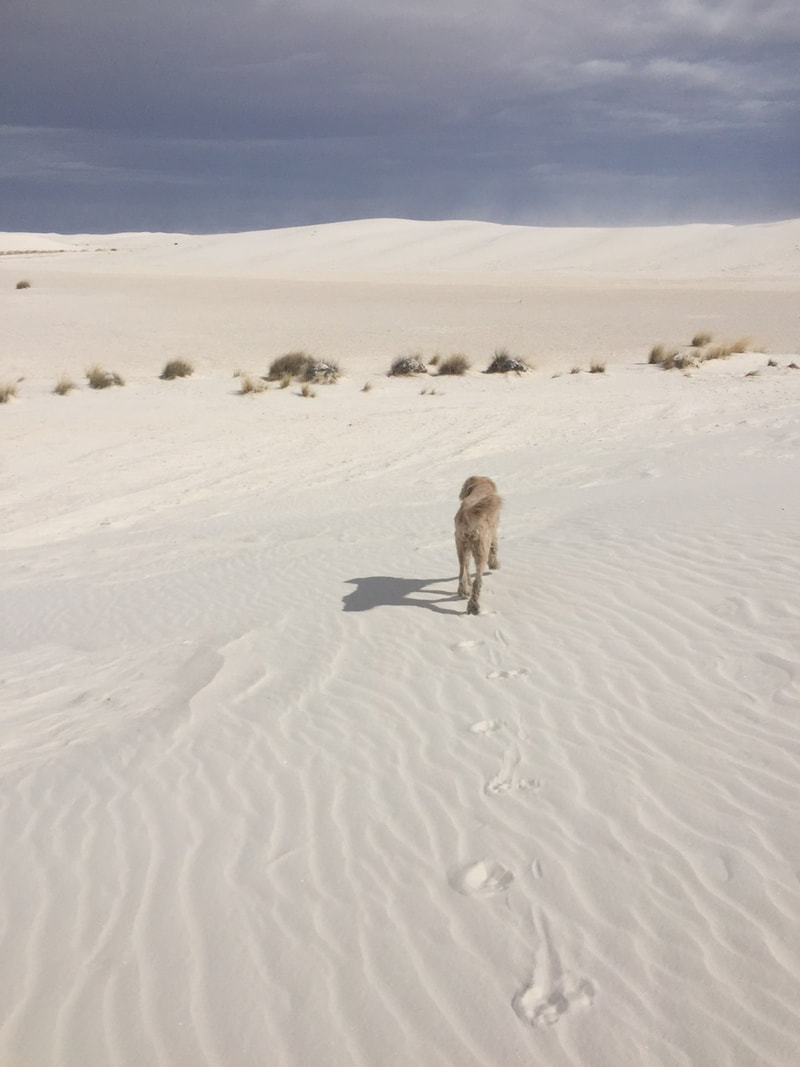
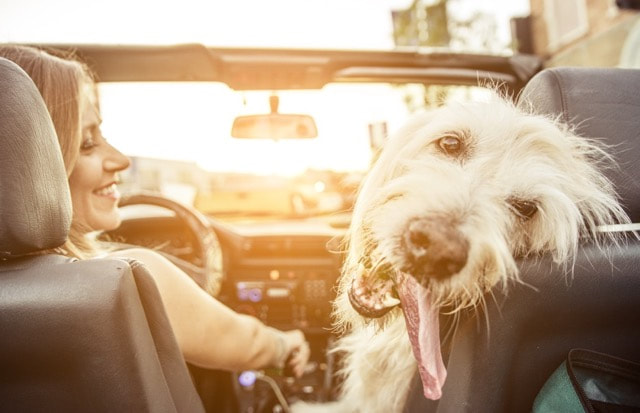

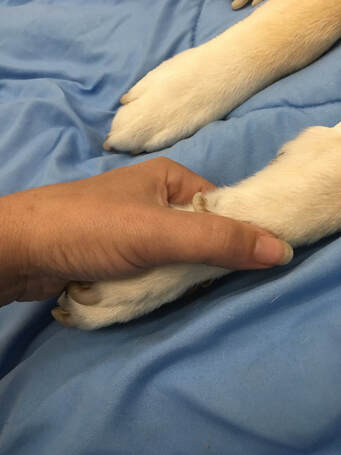
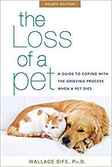
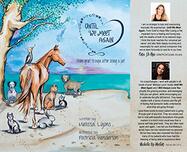
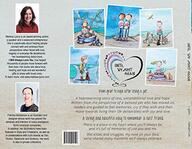

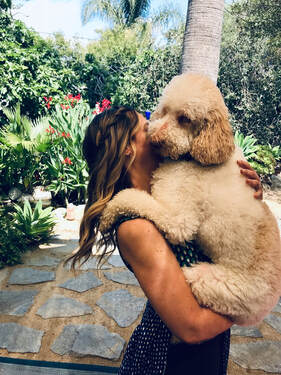

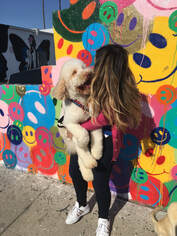
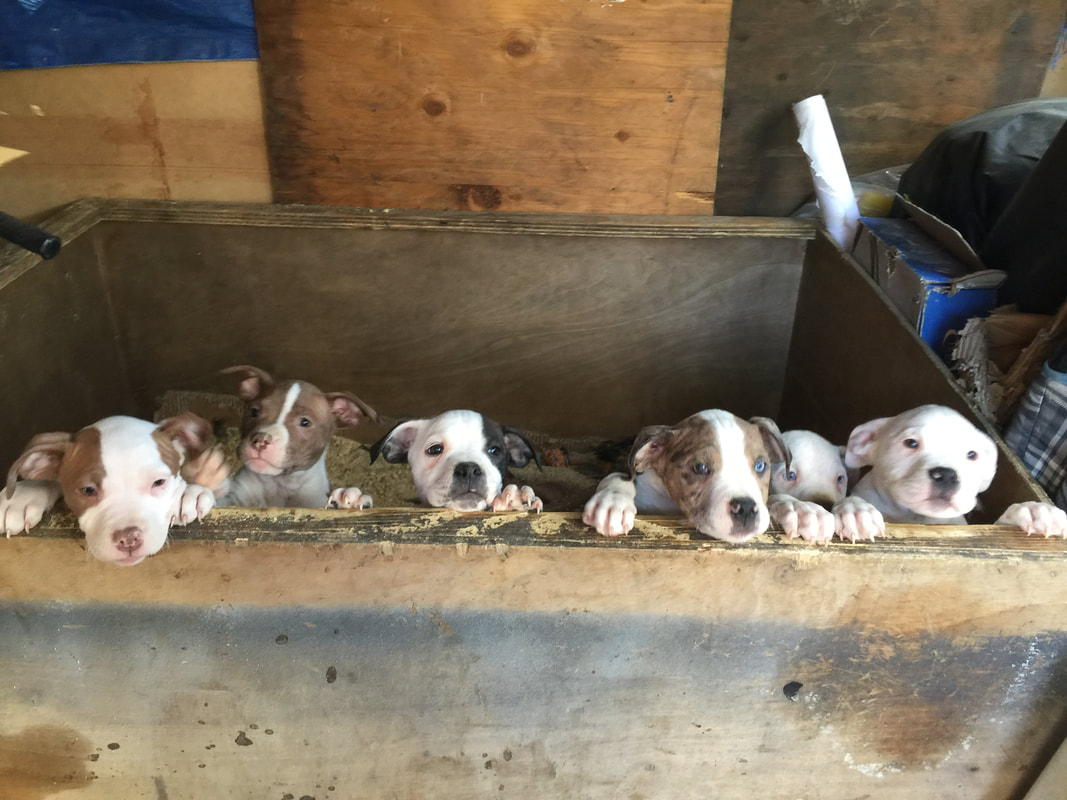
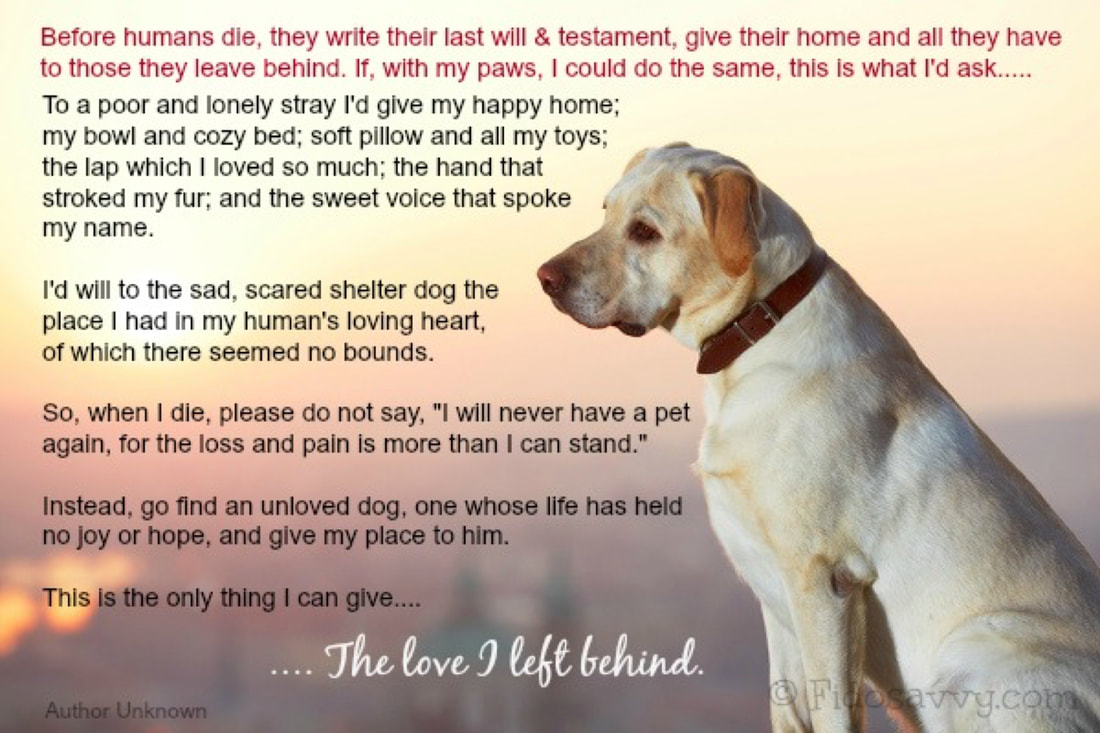
 RSS Feed
RSS Feed
